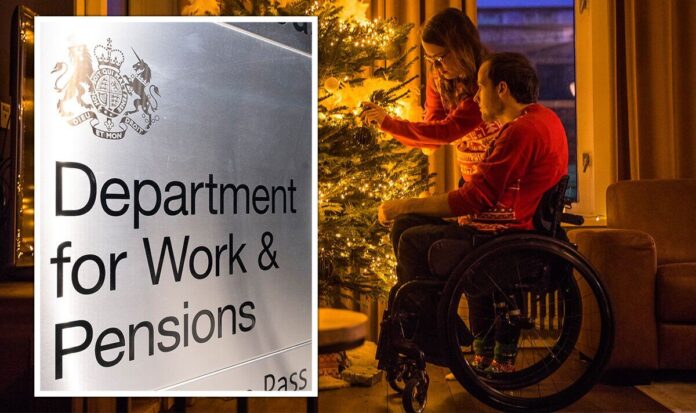As the expense of Christmas sits on the horizon and the effects of the rising cost of living continues to hit households, this year’s payments from the Department for Work and Pensions (DWP) are particularly important. Many will be keeping an eye on when cash will be deposited in accounts.This year, Christmas Day falls on a Sunday, and Boxing Day is on a Monday and means that the Christmas bank holidays have been shifted around.The Boxing Day bank holiday will fall on December 26 as normal, but because Christmas Day falls on a Sunday this year, December 27 has instead been designated as a substitute bank holiday.One benefit that will be impacted by the changing dates this festive period is Personal Independence Payments (PIP).PIP helps Britons with long-term physical disabilities and mental health conditions with their extra living costs.READ MORE: Barclays issues warning after man targeted in cruel online scam PIP payments will be different this year due to where the bank holidays fall (Image: GETTY)As a result of the changing bank holidays, PIP claimants who would normally expect to get their payments on December 26 or 27 should be paid on the Friday before.This will make the payment date Friday, 23 December.Similarly, as New Year’s Day 2023 is on a Sunday, the bank holiday will be on Monday, January 2 .This means PIP claimants due their payment on that day will once again be paid early on Friday, December 30.DON’T MISSState pension triple lock is Sunak’s ‘hot potato’ [INSIGHT]Money saving tips which could reduce your energy bill this winter [ANALYSIS]’Living’ state pension could create ‘adequate income’ for pensioners [EXCLUSIVE] What is PIP? (Image: EXPRESS)Britons are able to claim both components if they need it and can be eligible for any combination of the different amounts.If a person is eligible for both enhanced payments then they could claim up to £627.60 each month.Once a person has sent their claim, the DWP assesses it and looks at how a person’s condition impacts normal daily activities and grants them the benefit based on the severity of their condition.Sometimes, the DWP will need to conduct an assessment in order to accept someone’s claim for PIP.If someone is invited to attend a PIP assessment, as part of a new claim or an award review, it could be in-person, over the phone or by video call.The assessment is ‘not a diagnosis or a medical examination’, but instead serves as an opportunity for a person to talk about how their condition affects them.


